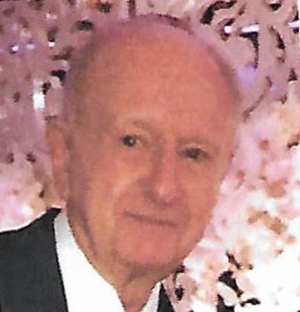
Part 4
(Continued from last week)
Although many of the older teachers of the higher schools and universities initially pushed back against the encroaching Jew hatred, the younger teachers, pushed by the student organization, were in the forefront and became the leaders of the Jew-hater organizations.
Although the Catholic churchmen had always been active in anti-Jewish organizations, the general public realized the activities of the anti-Semites were not only directed against the Jews but against all religions. Therefore, initially at least, they held back becoming involved with the programs.
In the 1890s, after Bismarck had been removed, many socialist laws were changed, causing considerable disturbances particularly amongst the Protestants. And whenever people suffer from disturbances, it is the Jews who are blamed. Political parties formed, split and reformed. Anti-Jewish groups combined, disagreed amongst each other and came apart, only to reform again in a different combination. Nevertheless, these constant reorganizations also enabled anti-Semites to infiltrate deep into all types of political and social organizations.
German scientists and those levels of the people active in politics, who always preached what they had accomplished and not what they had missed out on, pushed the responsibility of anti-Semitism onto the shoulders of “the uneducated common man.” It was therefore not Hitler who injected these thoughts into the people, but they existed for a long time already in the cultural tradition of the country.
The important National-Liberal Party throughout remained untouched by the extreme anti-Semitism. They rejected any interference from outside groups, and never accepted proposals for changes in the constitutional laws. They remained true to their political basics. Since they had fought, together with the Jews, for the emancipation of the citizens, many parliamentarians spoke often in favor of the Jews and fought against anti-Semitism. When anti-Jews tried to break in at the local level, they got nowhere. Unfortunately, this stand cost them dearly in the elections.
Whatever gains the anti-Semitic parties had reached by the 1890s continued, with minor changes, until the start of WWI. Throughout that period the leaders of the anti-Semitic factions began to realize that to be able to reach their goal, they would have to unite into one overall national organization.
Whether highly educated, or uneducated, they all agreed on one thing. Whatever happened, “der Jude” was responsible. What concrete actions the Jew had or not done was totally irrelevant.
More and more the impression spread that the Germany created under Bismarck was not the end, but only the beginning, of belief in a racial mission for the people. Out of the Prussian territorial state a national entity had developed, which was on the road to becoming a world might. They were told that the Germans were the aristocracy of the world, the highest race. Anti-Semitism had become deeply embedded in that nationalism and imperialism—it was their fight for “a place in the sun”—with an overwhelming political system, and their organizational, technical and military superiority.
As soon as external political failures had to be accepted, the Kaiser and the politicians were accused of having lost the prospects, the well-being and the honor of the nation. What resulted was increased activity in anti-Semitism—the Jew was always at fault.
The Jews were blamed for the result of the 1912 election, which gave the Social Democrats the upper hand, while shocking the anti-Semites. The chairman of the Alldeutschen Verbandes Heinrich Class proposed in a book to close the borders to all further Jewish immigration, the total expulsion of all Jews who had not yet become citizens and alien laws for all Jews or their ancestors who had established residence in Germany after January 18, 1871. The fact that these radical ideas were taken seriously and were discussed (the book had five editions until 1914) showed how widespread anti-Semitism had become. Class’ popularity again resulted in attempts to unite all the various factions against the Jew.
Class was able to recruit the retired Bavarian General Konstantin Freiherr von Gebsattel who enthusiastically issued a letter to all important politicians calling for a final battle against “Judenmacht” (might of the Jew) and hatred against social democratic leaders. In agreement with Class he promoted legislative and executive action against “Andersdenkende” (those who thought otherwise), changes in rights for election and new laws for “Die Lösung der Judenfrage” (solution of the Jewish question). This was the same expression used by Hitler. Further he requested that all Jews have the status of aliens and be taxed at double the normal rate. All mixture of Jewish and Germanic races would be heavily punished. Jews would not be permitted to own real estate, and they would be removed from all official and newspaper positions. These all were proposals that Hitler followed a few years later. With these regulations, von Gebsattle wanted to encourage all Jews to leave the country, but the borders would be opened only after all Jewish property had been properly registered and the greater part of it had been confiscated. Hitler just needed to follow these proposals in 1933.
(To be continued next week)
By Norbert Strauss













